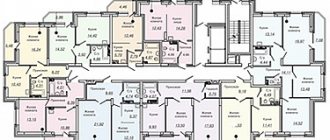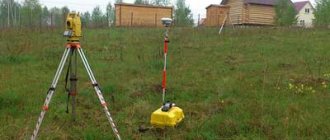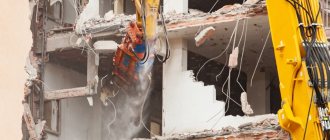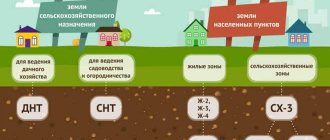On the territory of the Russian Federation, there are special laws that protect the psychological well-being and physical health of citizens from loud noise. In accordance with these laws, the noise level in the workplace, in the apartment and in the local area must be limited in accordance with certain requirements, and if these rules are ignored, penalties may be applied to the violator. But what noise restrictions apply in apartments and adjacent areas? Is the noise level in the workplace regulated? Is it true that Moscow has stricter noise laws? These issues will be discussed below.
Noise level in decibels
Many objects and human activities can produce noise of varying volumes. Quiet sound is safe for the human body, but prolonged exposure to loud noise can negatively affect a person’s well-being and even health. Therefore, the legislation of the Russian Federation is designed in such a way that a person is not exposed to loud noise. Noise standards depend on the type of site for which noise standards are established, the time of day, and so on. If these rules are ignored, administrative sanctions may be applied to the violator, and the amount of the fine depends on the legal status of the violator.
But let's first find out how loud certain sounds are. For convenience, we have collected this information in a special table (units of measurement are decibels):
| Noise Source | Noise level |
| Calm measured breathing | up to 10 dB |
| Clock ticking | up to 20 dB |
| Whisper | up to 30 dB |
| Working air conditioner or computer | up to 40 dB |
| Calm conversation, TV | up to 50 dB |
| Passenger car | up to 60 dB |
| Working electric razor | up to 70 dB |
| Included vacuum cleaner or hair dryer | up to 80 dB |
| Loud screams or crying of children | up to 90 dB |
| Repair work using various equipment | up to 100 dB |
| Working jackhammer | up to 110 dB |
| Screech | up to 120 dB |
| Loud music | up to 130 dB |
| Shot from a firearm | up to 140 dB |
Why is increased sound dangerous?
Whatever the reason, and no matter how long the extraneous sounds last, exceeding the permissible noise in decibels, both during the day and at night, this interferes with rest, work, and study. It has a very negative effect on the human body. Such an impact can have unpleasant consequences:
- irritability, nervousness, absent-mindedness;
- decreased response;
- obstacles regarding intelligence, productivity.
In addition, in the Russian Federation it was found that the influence of sounds above seventy decibels increases the risk of accidents and leads to hearing loss. This impact has a particularly negative impact on young children, women, citizens of retirement age, and the disabled.
Comparative indicators of permissible noise level in decibels:
| Origin of sound | Level in decibels |
| Human whisper | 30-40 dB |
| Elevator movement | 35-43 dB |
| Refrigerator operation | 42 dB |
| Air conditioner | 45 dB |
| Water flowing into a container | 38-58 dB |
| baby crying | 70 dB |
| Playing the piano | 80 dB |
| Noise in the supermarket | 60 dB |
You can also note that being briefly exposed to noise up to sixty decibels is not dangerous, but systematic noise above sixty will lead to disturbances and disorders of the nervous system.
Permissible noise level in the apartment
Noise standards have been established for residential apartments in a multi-storey building. The main regulatory document is Federal Law No. 52, which is often called the law on silence. This law was passed in 1999; This law has been amended periodically, but most of these amendments are minor. The main feature of this law in 2018-2019 is that each subject of the Russian Federation can make small changes and amendments, so the sound mode is slightly different depending on what region you live in.
However, on the territory of most constituent entities of the Russian Federation the following restrictions regarding noise levels apply:
- During the daytime (from 7 a.m. to 11 p.m.), the average noise level should be no more than 40 dB. In this case, it is periodically allowed to make sounds with a power of up to 55 dB, but such sounds must be short-lived. For example, in the case of repairs, it is allowed to periodically turn on a loud drill, which will not be a violation of the law; However, such a drill should not be left turned on, since this will cause the tool to make loud noises constantly, which will be a violation of the law.
- At night (from 11 p.m. to 7 a.m.), the average noise level should be no more than 30 dB. At the same time, it is also periodically allowed to make loud sounds with a power of up to 45 dB, and the nature of the sound should be short-term.
- Of primary importance is only the volume of a particular sound (and also, in some cases, its duration), but the origin of the sound itself does not matter. For example, you can easily turn on the music center at any time of the day, and your neighbors have no right to prevent you from doing this; however, the volume of the music center should be no more than 40 dB during the day or 30 dB at night - and if this rule is violated, the neighbors may actually report you to the police.
- In Moscow and some other cities, additional rules apply. Firstly, Moscow legislation introduces the term “time of silence”. Quiet times are defined as 2 daily intervals - from 7 pm to 9 am and from 1 pm to 3 pm. During this time, the following activities are prohibited: repair work, fireworks, loud singing, whistling, and so on. Secondly, additional restrictions apply during the holidays in Moscow. On public holidays, daytime hours last from 10 am to 10 pm (rather than from 7 am to 11 pm), and during this time it is allowed to make sounds up to 40 dB with the possibility of a short-term increase in sound up to 55 dB.
For violation of the above rules, administrative liability is provided under Article 3.13. If the violation was committed during the daytime, then in this case it is necessary to call a Rospotrebnadzor employee to your home to conduct a special examination. To carry out the examination, a special device is used that measures the noise level in the apartment - if it shows that your neighbor is making loud noise, then a special report will be drawn up. With this act you need to contact the police and write a statement. After this, the violation case will be transferred to the administrative court for consideration.
The penalty for making loud noise is:
| Legal status of the offender | Amount of fine |
| Private person | from 1 to 4 thousand rubles or a warning (if the violation was committed for the first time) |
| Executive | from 4 to 8 thousand rubles |
| Legal entity or individual entrepreneur | from 40 to 80 thousand rubles |
Rules of law
The maximum permissible noise level in residential premises during the day and night is established not by the codes of the Russian Federation, but by sanitary authorities. No matter how many decibels the outgoing sound makes, whatever the source, a mark of seventy and above is already considered harmful to the physical and psychological state of citizens. And if you can deal with violators at night by calling the local police officer, when, for example, neighbors are listening to music loudly. It will be more problematic to deal with the situation during the day, without special expertise. This can be done by calling employees of the sanitary-epidemiological station or a commission from Rospotrebnadzor. In any case, the statement of complaint will be officially recorded, and after the necessary measurements have been taken, a report will be drawn up.
Dear readers!
Our articles talk about typical ways to resolve legal issues, but each case is unique. If you want to find out how to solve your specific problem, please contact the online consultant form on the right →
It's fast and free!
Or call us by phone (24/7):
If you want to find out how to solve your particular problem, call us by phone. It's fast and free!
+7 Moscow,
Moscow region
+7 Saint Petersburg,
Leningrad region
+7 Regions
(the call is free for all regions of Russia)
In addition to the reproduced noise in residential buildings from neighbors, there is also such a thing as compliance by the developer with standards when constructing residential buildings and premises. According to the laws of the Russian Federation, the sound insulation of an apartment building should not exceed fifty decibels. This refers to noise that is transmitted through the air. For example, conversations between neighbors, the usual operation of a TV behind the wall, etc. If the established acceptable standards are violated, the developer will face a rather large fine after filing a complaint from residents and conducting all examinations.
Noise standards in an apartment building - latest changes in the law 2018-2019
For the local area next to an apartment building, slightly different noise restrictions have been established. In the daytime (from 7 to 23 hours) the noise level should be no more than 70 dB, and in the evening - no more than 60 dB. However, please note that after 19.00 some other activities that make a lot of noise are also prohibited:
- Carrying out repair work.
- Launching fireworks.
- Loud music.
- Parties.
- Loud singing.
- Whistling.
Violation of these rules is subject to standard administrative liability under Article 3.13. Punishment for individuals - from 1 to 4 thousand rubles or a warning, for officials - from 4 to 8 thousand rubles, for legal entities and individual entrepreneurs - from 40 to 80 thousand rubles. The main regulatory act is Federal Law No. 52 (the so-called law on silence), as well as various regional laws. The latest amendments, which limit the use of certain sounds after 7 p.m., were made to the law on silence in 2012, and the law has not changed since then.
note
Increased noise in residential buildings, especially if it is regular, at night or during the day, cannot be ignored. Because sooner or later it will affect human health. Whether it is the sound of music from neighbors, discos in a neighboring building, repair work using electric tools, it does not matter.
Before hiring a noise level measurement specialist, it is worth checking whether they are licensed to do this activity. Before the start of cooperation, albeit short-term, an agreement must be drawn up between the experts and the customer. After taking measurements, it is important to make sure that the documents contain the correct information. And only after receiving a document about the examination performed, you can contact the sanitary-epidemiological service or Rospotrebnadzor directly. As a last resort, if this does not produce any results, you need to go to court.
When neighbors constantly listen to loud music, especially at prohibited times, it is advisable to call the local police officer. Record violations, write statements and draw up an act of violation. If you go to court, these documents will be needed.
At work
Sanitary noise standards also apply to the workplace. Moreover, the governing law in this case is the sanitary law SN 2.2.4. This law states that the maximum permissible noise level in the workplace depends on two parameters - the severity of the work and the degree of stress of the worker. These two parameters must be determined by a special commission or any person who has the appropriate education. Noise standards according to legislation in 2018-2019 in the workplace are as follows:
| Type of work | Maximum noise level |
| Light to medium work with low stress levels | 80 dB |
| Heavy, low-stress work | 75 dB |
| Light to medium-stress work | 70 dB |
| Heavy work with medium voltage levels | 65 dB |
| Various high voltage jobs | 60 dB |
| Various jobs with very high voltage levels | 50 dB |
Violation of noise standards is equivalent to a violation of sanitary standards. The fact of a violation is established on the basis of a control noise measurement using a special device that determines the noise level in the room. Control measurements are carried out by Rospotrebnadzor authorities during a scheduled or unscheduled inspection of an enterprise. If violations are detected, a person may be held administratively liable under Article 6.4. The punishment in 2018-2019 is:
| Legal status of the offender | Amount of fine |
| Individual | from 500 to 1,000 rubles |
| Executive | from 1,000 to 2,000 rubles |
| Individual entrepreneur | from 1,000 to 2,000 rubles or suspension of activities (up to 90 days) |
| Entity | from 10,000 to 20,000 rubles or suspension of activities (up to 90 days) |
Why is expertise needed?
Exceeding the permissible noise standard for residential buildings in the Russian Federation is one of the main factors of environmental pollution. This means that this indicator must be regularly monitored in order to avoid deterioration in health. The Sanitary and Epidemiological Station has developed a number of regulatory documents that determine the degree of danger of noise, both in residential premises and on the street, in industries, medical and educational institutions. In the daytime and at night these are different indicators; by the way, during the day they are higher.
Table of permissible noise levels for air conditioning and ventilation systems
Control in different areas is carried out by different services. The State Inspectorate deals with noise at work. At the workplaces of other organizations, the supervisory authority is the Labor Inspectorate, but the sanitary and epidemiological service itself checks the permissible standards in residential premises.









